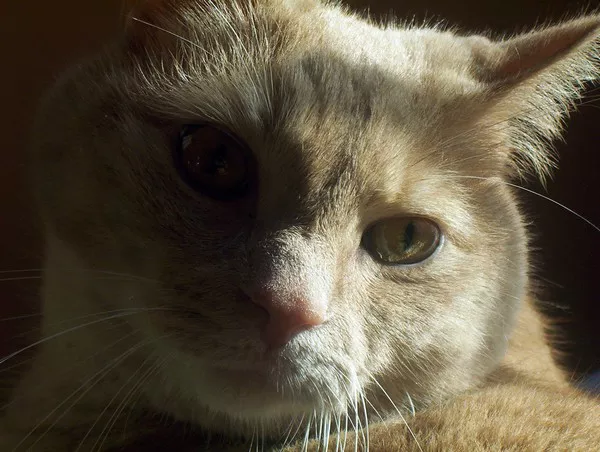Savannah cats, a hybrid breed known for their striking appearance and lively personalities, are increasingly popular among cat enthusiasts. With their exotic lineage, stemming from a cross between a domestic cat and a serval, these felines possess unique traits and characteristics. However, like all breeds, Savannah cats are susceptible to specific health issues that potential owners should be aware of. This article explores the common health problems associated with Savannah cats, their symptoms, preventive measures, and overall care strategies to ensure a long, healthy life for these captivating creatures.
Savannah Cats
Savannah cats are known for their striking looks, characterized by large ears, long legs, and a spotted coat reminiscent of their wild ancestors. They are energetic, intelligent, and require significant mental and physical stimulation. While they are generally hardy, their unique genetic background makes them prone to certain health issues. Understanding these potential problems is crucial for any prospective or current Savannah cat owner.
Common Health Issues in Savannah Cats
1. Pyruvate Kinase Deficiency (PK Deficiency)
Pyruvate Kinase Deficiency is an inherited condition that affects the cat’s red blood cells, leading to anemia. This condition is caused by a deficiency of the enzyme pyruvate kinase, which is essential for energy production in red blood cells. Symptoms may include lethargy, pale gums, and weakness. Regular blood tests can help detect this condition, and genetic testing is available for breeders to ensure they do not pass this trait onto their kittens.
2. Hypertrophic Cardiomyopathy (HCM)
Hypertrophic Cardiomyopathy is the most common heart disease in cats, including Savannahs. This condition leads to the thickening of the heart muscle, which can result in heart failure if not managed properly. Symptoms can be subtle, including lethargy, difficulty breathing, and sudden collapse. Regular veterinary check-ups and echocardiograms can help detect HCM early, allowing for timely intervention.
3. Dental Disease
Dental issues are prevalent among all cat breeds, and Savannahs are no exception. Common dental problems include periodontal disease and tooth resorption, which can lead to pain and difficulty eating. Signs of dental disease include bad breath, excessive drooling, and pawing at the mouth. Regular dental care, including brushing and professional cleanings, is essential to maintain oral health.
4. Progressive Retinal Atrophy (PRA)
PRA is a genetic eye disorder that can lead to blindness in affected cats. This condition causes the gradual degeneration of the retina, and symptoms may not be evident until the disease is advanced. Regular veterinary examinations can help catch early signs of PRA, and responsible breeders should screen for this condition.
5. Feline Lower Urinary Tract Diseases (FLUTD)
FLUTD encompasses a range of urinary issues that can affect cats, including urinary tract infections, bladder stones, and inflammation. Symptoms may include frequent urination, straining to urinate, and blood in the urine. Maintaining a proper diet and ensuring adequate hydration can help prevent urinary issues.
6. Obesity
Due to their playful and energetic nature, Savannah cats require regular exercise to maintain a healthy weight. Obesity can lead to various health problems, including diabetes, joint issues, and heart disease. Owners should provide a balanced diet and opportunities for physical activity to prevent obesity.
7. Diabetes Mellitus
Diabetes is a metabolic disorder that can occur in Savannah cats, particularly those that are overweight. Symptoms include increased thirst, frequent urination, and weight loss despite a good appetite. Regular veterinary check-ups can help monitor blood sugar levels and manage the condition effectively.
8. Renal Failure
Kidney disease is common in older cats, including Savannahs. Symptoms may include increased thirst and urination, weight loss, and lethargy. Regular veterinary check-ups and blood tests can help detect kidney issues early, allowing for management and treatment.
9. Infectious Diseases
Like all cats, Savannahs are susceptible to various infectious diseases, including feline viral rhinotracheitis, calicivirus, and rabies. Vaccinations are crucial in preventing these diseases, and owners should work with their veterinarians to establish a vaccination schedule.
See Also: What Health Problems Do Chimera Cats Face?
Preventive Care for Savannah Cats
Preventive care is essential for maintaining the health and well-being of Savannah cats. Here are some key strategies to ensure your Savannah remains healthy:
Regular Veterinary Check-Ups: Annual or bi-annual veterinary visits are crucial for early detection of health issues. Regular check-ups allow for vaccinations, dental cleanings, and overall health assessments.
Proper Nutrition: A balanced diet tailored to the specific needs of Savannah cats is vital. Consult with a veterinarian to determine the best food options, and avoid grain-free diets that may contribute to heart issues.
Exercise and Enrichment: Savannah cats are active and intelligent, requiring ample physical and mental stimulation. Provide interactive toys, climbing structures, and opportunities for play to keep them engaged and healthy.
Dental Care: Establish a dental hygiene routine that includes regular brushing and professional cleanings. This can help prevent dental disease and maintain overall health.
Genetic Screening: Responsible breeders should conduct genetic testing for conditions like PK deficiency and PRA. This can help prospective owners make informed decisions about their cat’s health.
Vaccinations and Parasite Control: Keeping up with vaccinations and preventive treatments for parasites is essential for protecting your cat from infectious diseases.
Safe Environment: Create a safe and stimulating environment for your Savannah cat. This includes providing safe toys, avoiding small items that could be ingested, and ensuring they have access to fresh water.
Conclusion
Savannah cats are unique and captivating companions, but they come with specific health considerations that potential owners must be aware of. By understanding the common health problems associated with this breed and implementing preventive care strategies, owners can help ensure their Savannah cats lead long, healthy lives. Regular veterinary check-ups, proper nutrition, and a stimulating environment are key components of maintaining their health. With the right care, Savannah cats can thrive and continue to be the lively, affectionate companions that they are known to be.
Related Topics
What Are Common Health Problems In Older Cats?
























